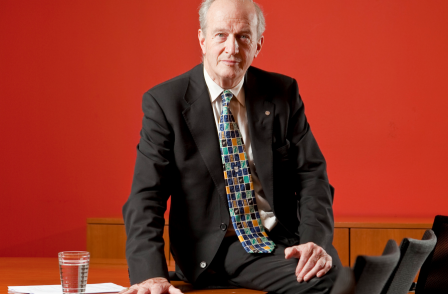
-
Creation of arbitration arm could be postponed
-
Conscience clause and whistleblowers hotline expected to be in new regulatory scheme
-
Controlling access to press cards, advertising and Press Association no longer on the table
-
Editors will not sit on the new complaints-handling body
-
Industry will not have power of veto over independently-appointed chairman
Newspaper and magazine owners are prepared to press ahead with the creation of a new self-regulation body without the arbitration arm called for by Lord Justice Leveson.
At a briefing for journalists this morning, Lord Hunt revealed that around 90 representatives of the national and regional press and magazine industry – who met last Thursday – have agreed to sign up to the “regulatory structure recommended by Sir Brian Leveson as soon as is practicable”.
They have also agreed to ask lawyers to come up with an arbitration arm which would provide publishers with low-cost libel settlements without encouraging all complainants to seek compensation.
Regional press publishers in particular are concerned that the creation of the arbitration wing would involve lawyers and compensation in matters which would previously have been settled simply with a correction or an apology.
But at a briefing for journalists this morning PCC chairman Lord Hunt said that delays in overcoming the problems associated with the creation of the arbitration service would not stop the new regulator getting up and running by his self-imposed deadline of 1 July.
Hunt told Press Gazette that he envisaged that the conscience clause and whistleblowing hotline would both form part of the new regulatory system which publishers sign up to.
Both are measures called for by the National Union of Journalists with the intention of providing protection for ordinary journalists.
The conscience clause would give journalists asked to breach the Editors’ Code protection from being disciplined or dismissed.
Lord Hunt said the industry has also agreed to the principle that no serving editors will sit on the new complaints-handling body.
He also said that the industry has accepted that the new body must be “verified” in some way – but that it will leave the Government to decide how this should be done.
Most editors remain opposed to any statutory involvement in press regulation, but it remains to be seen how the “independence and effectiveness” of the new regulator can be guaranteed without this. In his report Leveson recommended legislation.
Lord Hunt said the industry has agreed there must be outside “verification but not oversight” of the new regulator.
"Everyone has now agreed that we proceed to set up a new industry regulatory body in accordance with the Leveson principles.
“Lawyers are now going to do considerable further work on how to set up the appropriate procedure for the arbitral arm.”
Hunt said that as far as he was aware the other incentives for membership of the new body were no longer being pursued.
These were outlined in the original plan put forward by Lord Black and included controlling access to Press Cards, Press Association content and major advertisers.
Lord Hunt said that the industry has agreed that the chairman of the new regulator should be appointed by an appointments board which has a majority of non-industry members.
Concerns have been raised that the industry would retain direct control of the new regulator if its board members were allowed to have power of veto over the choice of chairman – as envisaged in the original Lord Black plan.
In response to a question on this point from Press Gazette, Lord Hunt said: “we don’t want to have a veto by anybody”.
Under the industry plan now moving forward the regulator would be run by a five-person board comprising an independently-chosen chair, two other independently-chosen members and two industry representatives picked by the press owners.
Lord Hunt said he expected that various publishers will now sign up to contracts binding them in to the new system of self-regulation “as soon as possible”.
He said he will also be approaching web-only publishers to see if they wish to join the new system.
Richard Desmond's Northern and Shell, which opted out of the PCC, has apparently indicated that its titles will sign up to the new contracts.
Private Eye editor Ian Hislop has yet to reveal whether or not his title will sign up to the new system. It also declined to be part of the PCC.
Email pged@pressgazette.co.uk to point out mistakes, provide story tips or send in a letter for publication on our "Letters Page" blog
